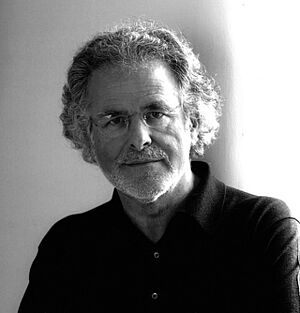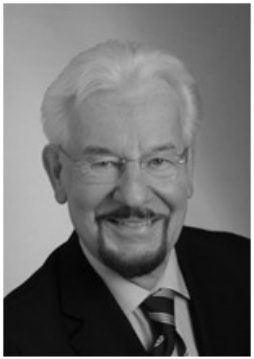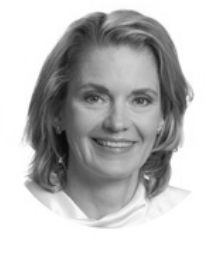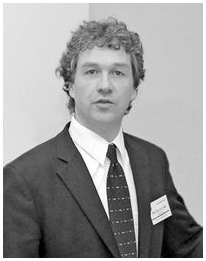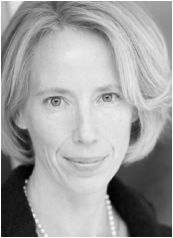Prof. Dr. Dr. h.c. Walter Zieglgänsberger
Doctor and brain researcher – former head of department Clinical Neuropharmacology at Max Planck Institute for Psychiatry Munich.
Born in 1940 in Landshut, Walter Zieglgänsberger studied medicine at the LMU München.
After he received his licence to practise medicine in 1971, he spent increasingly more time in basic neurobiological research at the MPI for Psychiatry.
In 1976, he qualified as a professor in two subjects Physiology andPharmacology and became a medical specialist in Pharmacology andToxicology and a medical specialist in Clinical Pharmacology.
From 1979 to 1983, Walter Zieglgänsberger carried out research in various laboratories in Europe and the USA (AVD-Center for Behavioral Neurobiology, The Salk Institute in La Jolla, California) and was appointed associate professor at the LMU München in 1984.
In den Jahren 1998 und 1999 war sie Assistenzärztin in der Klinik für Psychiatrie und Psychotherapie der Rheinischen Kliniken Essen (Universitätsklinik Essen, Direktor: Prof. Dr. M. Gastpar. Aufnahmestation für psychiatrische Akuterkrankungen; Station für qualifizierte Entgiftung von alkohol- und medikamentenabhängige Patienten) In der Zeit von 1993 – 1998 war sie AIP und Assistenzärztin in der Neurologischen Universitätsklinik Essen (Direktor: Prof. Dr. H. C. Diener Privat, Normal. Überwachungs- und Intensivstation; Poliklinik; Rotationszeit Dopplersonographie (6 Monate); Schmerz-, Kopfschmerz- und Botoxambulanz; Bereitschafts- und Konsiliardienst).
On returning to Munich, he headed up the working group "Clinical Neuropharmacology" at the MPI for Psychiatry from 1984 to his retirement.
Walter Zieglgänsberger is a member of several high-ranking national and international medical committees and associations.
Extensive lecture and consulting activities, including for the DFG (German Research Foundation), lectures and supervision of doctoral students as member of the Core Faculty of the Graduate School of Systemic Neuroscience at the LMU.
Numerous workshops in the context of further training for doctors.
Member of Ethics Committee of Bavarian Landesärztekammer (State Chamber of Medicine).
Member of expert committee in accordance with §1 subsection 2 Federal Law on Narcotics (BtMG) at Federal Institute for Drugs and Medical Devices, BfArM, Federal Narcotics Bureau.
President of European Winter Conference on Brain Research.
Vice President of scientific association Muscle and Pain.
His main fields of activity include molecular biological and pharmacological aspects of neurohumoral transmitter mechanisms in the central nervous system. From the start, he has particularly focused on pain and addiction research (see if necessary also more recent interviews in the newspapers ZEIT, FAZ, NZZ, SZ or TV interviews among others repeated in Scobel, BRalpha Forum etc.; several training films for doctors/medical students).
Walter Zieglgänsberger has received many awards for his scientific achievements including the German Prize for Pain Research and Pain Therapy, the award for excellence of the German Prize for Pain Research and Pain Therapy, the Galenus v. Pergamon Prize and the Sertürnerprize. The Technical University TU München awarded him an honorary doctorate in 2012.
Prof. Dr. phil. Dieter Vaitl
born in Garmisch-Partenkirchen, he studied Philosophy in Rome and Psychology in Freiburg.
At the University of Giessen, he held the chair of Clinical Psychology and Psychophysiology. He has been a member of the Board of the Institute for Psychobiology and Behavioral Medicine there to the present day.
In 2000 he founded the Bender Institute for Neuroimaging (BION) and is still the business manager of the Institute today.
Outside the University of Giessen, he is the Director of the internationally renowned Institute for frontier areas of Psychology and Psychohygiene in Freiburg.
From 1982 to 1988, he was founding President of the German Association for Psychophysiology and President of the Association of European Psychophysiology Associations (1994-1996).
He belongs to numerous scientific specialist associations and was an expert for the German Research Foundation for many years.
His current research focus is in the area of Clinical Psychophysiology. His particular interest here is in questions of the learnability and plasticity of bodily reactions and their dependence on special life conditions.
Another research area is the neurobiological basis of altered states of consciousness (trance, hypnosis, hallucinations).
He organises and used to head the international research association "Altered states of consciousness". His scientific work and research results have been documented in more than 250 journals, contributions, books and chapters. He was awarded the German Psychology Prize in 1997 for his clinically relevant psychophysiological research work and his commitment to further training of clinical psychologists.
Language and its impact with lasting repercussions triggers changes and builds a bridge to sustainability.
Thinking is usually unconscious and affected by interpretative frameworks and context.
The dimensions and social repercussions on society can be experienced on the basis of neuroscientific findings. Linked to this are also concepts for sustainability - social, economic, ecological, ethical. The medium of language opens up dialogues and time-space and through this, deeper insights and complex issues are conveyed.
Dr. med. Astrid Gendolla
Seit 2009 ist Dr. med Astrid Gendolla niedergelassen in eigener Praxis als Fachärztin für Neurologie, spezielle Schmerztherapie und Psychotherapie. Sie ist Leiterin des regionalen Schmerzzentrum Essen und arbeitet seit 1999 in der Neurologischen Universitätsklinik Essen (Direktor: Prof. Dr. H.C. Diener). Ebenso ist sie seit 2005 Leiterin der Ambulanz und Tagesklinik des Westdeutschen Kopfschmerzzentrums sowie Oberärztin der Neurologischen Universitätsklinik Essen.
Sie ist Mitglied der Deutschen Migräne und Kopfschmerzgesellschaft, Deutschen Gesellschaft zum Studium des Schmerzes, Deutsche Gesellschaft für Schmerztherapie.
Hochschul- und ärztliche Ausbildungen: Weiterbildung Psychotherapie (Ärztekammer Nordrhein, Professor Drees), Abschluss 12/06 mit Facharztanerkennung, Weiterbildungsberechtigung „Spezielle Schmerztherapie", Zusatzbezeichnung „Spezielle Schmerztherapie", Facharztanerkennung Neurologie, Vollapprobation als Ärztin, Studium der Humanmedizin, Universität Würzburg, Studium der Rechtswissenschaften, Universität Würzburg.
Dr. Franziska Wiebel
Seit 2013 arbeitet Fr. Dr. Franziska Wiebel als Rednerin, Trainerin und Coach. In der Zeit von 2005 - 2012 arbeitete sie als Medical Writer (Sanofi-Aventis Deutschland GmbH, Frankfurt/Main) In den Jahren 2002 und 2003 war sie Technische Redakteurin und Übersetzerin (Englisch/Deutsch).
In der Zeit von 1997 - 2000 arbeitete sie am Interfakultären Institut für Zellbiologie, Eberhard-Karls-Universität Tübingen als Wissenschaftliche Mitarbeiterin. 1993 - 1997 Postdoktorat (Department of Biosciences, Karolinska Institut, Stockholm, Schweden) 1993 Dissertation (Fakultät für Medizin der Ruhr-Universität Bochum) 1989 Diplom (Fakultät für Medizin der Ruhr-Universität Bochum) Sie studierte von 1985 bis 1989 Biologie mit den Schwerpunkten Molekularbiologie, Tierphysiologie, Immunologie an der Ruhr-Universität Bochum.
In den Bereichen Training, Coaching und Vorträge ist sie zertifizierte Trainerin (Deutscher Verband für Training und Coaching e.V.); zertifizierte Advanced Business-Trainerin & -Coach (Competence on Top); zertifizierte Organisationsentwicklerin (Competence on Top); erfahrene Rednerin („Competent Communicator", Toastmasters International); NLP-Practitioner (Deutscher Verband für Neuro-Linguistisches Programmieren); Themenschwerpunkte: Resilienz, Burnout, Train the Trainer, biologische Blickwinkel.
Wissenschaft & Forschung: Molekularbiologische Grundlagenforschung (Genregulation, Signal- und Transportwege, Entwicklungs- und Evolutionsbiologie etc.), klinische Forschung und Entwicklung; Dokumentation und Lehre: Publikationen (siehe Liste), Poster, Vorträge, Forschungsanträge, Seminarvorlesungen.
Medical Writing: Klinische Studienberichte, Studienanträge, Prüfarztbroschüren, Zulassungsdossiers etc.
Publications Dr. Wiebel hier
Sie spricht Englisch und Schwedisch als Alltagssprachen, Spanisch und Französisch sehr gut.
